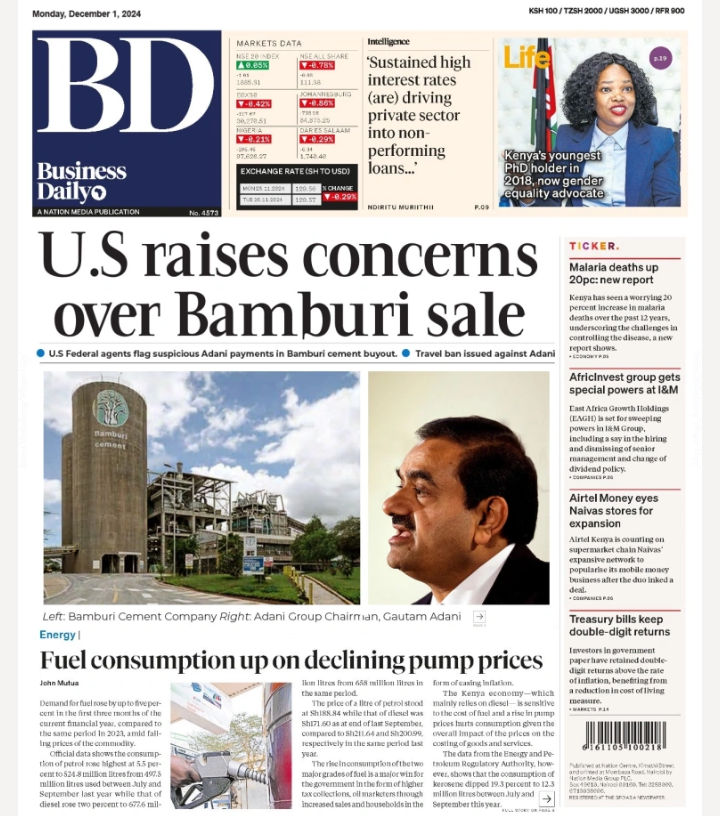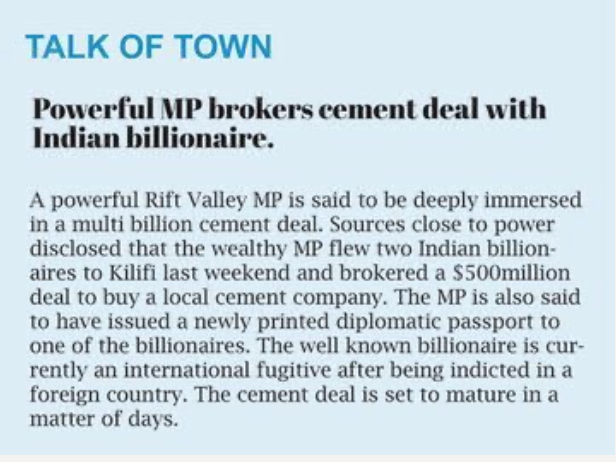KCB Bank has been involved in a scandal involving money laundering and financial irregularities.
The bank’s role in financing a controversial deal with the Amson Group, a Tanzanian company linked to the notorious Adani Group, raises serious questions about its practices and integrity.
Amson’s Group is interested in buying Bamburi Cement, a large company in Kenya.
However, it has been revealed that Amson is connected to Adani’s UAE company, which has been indicted in the United States for money laundering and bribery.

These connections to Adani, a company with a reputation for illegal financial dealings, raise red flags about the legitimacy of the entire deal.
KCB Bank is at the center of this issue, as it is expected to finance the Sh 23.5 billion needed for Amson to take over Bamburi Cement.
Given Adani’s history of financial scandals, it is highly possible that this deal is part of a larger money laundering operation, using KCB Bank to hide illegal transactions.
The bank’s involvement in this shady deal suggests a lack of proper checks and safeguards within its operations.
KCB’s actions raise serious concerns about its ability to assess risks and follow legal procedures.
The bank, which has claimed to uphold high standards of ethics and financial responsibility, is now linked to a deal that could be illegal.
By being involved with Amson, which has connections to a company like Adani, KCB is clearly putting profits ahead of ethics and regulatory compliance.

A report in the Daily Nation newspaper hinted at the involvement of powerful political figures, including a Rift Valley MP, in the deal.
The MP allegedly helped broker the $500 million deal to buy Bamburi Cement and even facilitated the transaction by providing a diplomatic passport to one of the billionaires involved, who is wanted in another country for criminal activities.
The money was supposedly deposited into KCB Bank, making the bank an active participant in this questionable deal.
KCB Bank’s involvement with Amson and Adani puts its reputation on the line.
If the bank is found to have knowingly facilitated illegal activities, it could face severe consequences, including large fines and sanctions.
The scandal threatens to damage KCB’s standing in both the Kenyan and international financial markets, as stakeholders will now question the bank’s ability to operate ethically.
The larger issue here is the damage this scandal does to the trust in Kenya’s financial system.
KCB’s failure to follow due process and avoid shady deals calls into question the integrity of the entire banking sector in East Africa.
Investors and international bodies will be concerned about the stability and transparency of the region’s financial institutions, especially when a major bank like KCB is involved in such a controversial deal.





















Add Comment